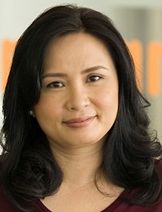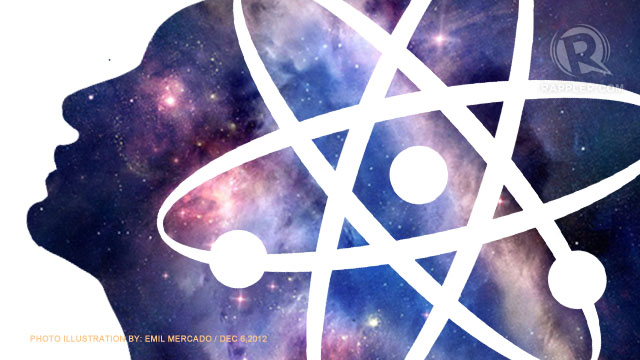SUMMARY
This is AI generated summarization, which may have errors. For context, always refer to the full article.

When I graduated from my nursery class, Apollo 11 had landed on the moon less than a year before that. I was to give a short speech to my class and to our parents. It was a speech that my father wrote for me and had this as its highlight: “Tomorrow, when we look back, we would realize that what was yesterday, was actually a giant leap tomorrow.” That was verbatim because for some reason, I still remember every word of the whole speech.
The first time I read that after my Dad wrote and handed it to me the night before graduation, I remember asking my father what “leap” meant. And when he told me, I asked him how different it was from a mere “jump.”
I think that was a milestone in my understanding that certain things could mean a lot, and more importantly, could move us a lot. But of course, that “understanding” could not have come from the experience of my 4-year-old self then. It was mostly because I completely trusted my Dad who was an adult and I assumed had enough experience to know that there are certain things that affect and move everything else.
It was only last year that I asked my father why he had me deliver that line when most people in my audience then may not have understood it. He simply said “…but YOU understood it and that is the only thing that mattered to me.” My father was only 27 then and that was probably the most important thing he ever did for me. It marked the direction of my mind from then on even without me knowing it.

Science and understanding
I am now a middle-aged woman and for over half of the years I have lived through, I found that science is the most reliable enterprise if you were after the business of “understanding.” So much so that 10 years ago, I had decided to spend most of my waking hours doing science writing or doing other aspects involved in the public understanding of science.
Before that, I was mostly discovering what science was really about – how much more it was than being merely the “subject” included in the items that we pay for in school, or something that most people are too afraid of.
The point of no return was when I married a physicist 22 years ago. That was the most personal “scientific encounter” I had ever had, that even if he died after we were married for a dozen years, it had irreversibly tuned me into the life of this kind of hunt – one that I have embraced with passionate pleasure.
I am a science writer. I hunt for these things in the past and present that either propelled or would propel our understanding of ourselves, each other, and the universe. The reverse is true as well. I shall also look back at things that have caused or are causing us to slide back to the dark ages – with ignorance or worse, refusal – to benefit from the understanding that science has so far given us.
I look at what I find and write about them, connecting each “find” with aspects of our lives, personal or collective. This column is the first of a new series I am doing for Rappler.
In the past weeks, I have come across interesting news that the Kazakhstan president who has been in power for 21 years has challenged scientists to make an elixir for immortality. The pressure apparently was great enough that scientists in his country had to come out with one and it was, ready for this, yogurt.
This “breakthrough” elicited the most polite reviews from other scientists that could be summarized to mean that yogurt surely aids in digestion but that good digestion may not be the only thing we need to live forever. That the secret to immortality allegedly lies in yogurt is among the kinds of “finds” I thrive on for my columns.
Philippine society is generously awash with these kinds of claims and in my columns, I want to pick them out and pry them with the tools of rigorous testing and clear reasoning that science is so famous for. While it may be highly unlikely that yogurt is the singular harbinger of immortality, we shall follow it and all other outrageous claims, even in their short journeys of plausibility in these columns.
In equal measure, we shall also follow genuine revolutions in the way we understand nature within and out there – from the discoveries in neuroscience that tell us that we can still grow new brain cells even in old age and that our brains can rewire even after damage, to the littlest particles that make up everything, to the secrets of bees and dolphins, forests and oceans, to digital worlds that transform how we engage the world and each other, and everything in between.
We shall leave no science rock unturned as I trip on them while on this journey.
To my readers from where I wrote before and to new ones who will stumble upon this now, welcome to this weekly passionate chase to understand this expanding, accelerating universe of things. – Rappler.com
Maria Isabel Garcia is a science writer. She has written two books, “Science Solitaire” and “Twenty One Grams of Spirit and Seven Ounces of Desire.” Her email address is sciencesolitaire@gmail.com.
Add a comment
How does this make you feel?
There are no comments yet. Add your comment to start the conversation.